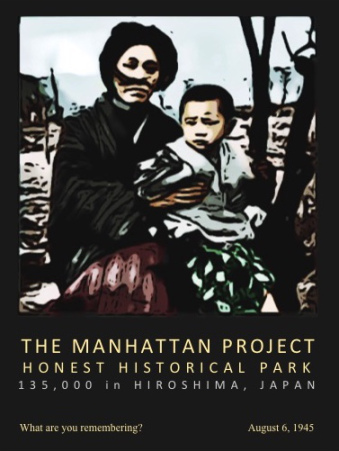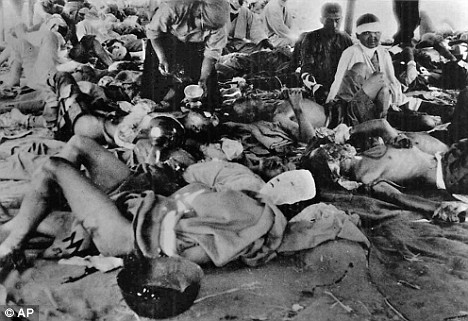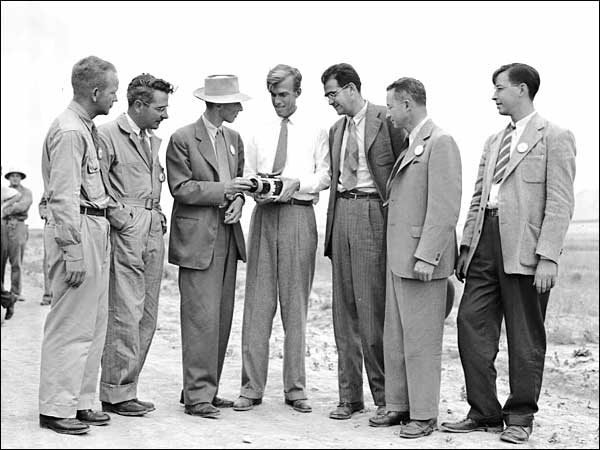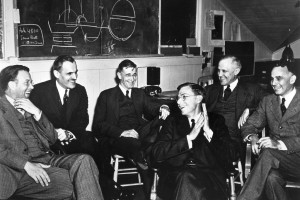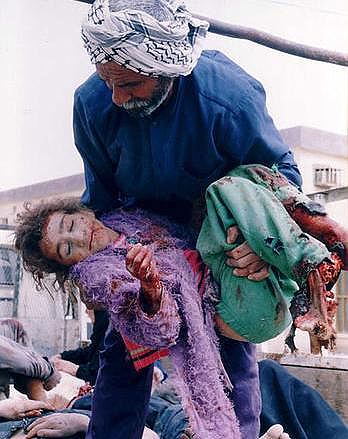The following was written by Paul Nyklicek, a Catholic, husband, father, psychotherapist and frequent visitor to CAM. We thank him for this contribution to our blog.
****
Consumerism has become our national religion. Ours is a capitalist nation that happens to have some Christians, Jews, Muslims, Hindus, Buddhists, and other actually religious people living within its borders. As a nation, however, we are fundamentally materialistic. Increasingly, our lives consist of the pursuit of more and more “stuff” to create the illusion that we are happy. Part of this “pursuit of happiness” is the belief that there is only so much “stuff” to go around. We have to compete for the “stuff” we are conditioned to want because we believe we can’t be happy unless we get it. Competition means fighting for what we want. Militarism is the logical extension of this concept.
Militarism has become a “normal” part of our lives. In our culture today it is not only normal but revered. Calls to “support the troops” are commonplace. Militarism is also increasingly a part of our civilian police force as they accept and utilize military equipment. There are also indications that civilian police are adopting a militaristic philosophy as well.
We must not confuse “supporting the troops” with supporting the military-industrial complex. We must resist marketing efforts to blur the line between these very different ideas. Militarism has been defined as “the belief or desire that a country should maintain a strong military and be prepared to use it aggressively to defend or promote national interests” as well as “the tendency to subordinate all other interests to those of the military”. The troops are the means to that end. Popular support is also essential because without it the mechanism does not work smoothly.
Every public event that gives recognition and respect to military personnel becomes, by design, a reinforcement of and support for national militarism policies and actions. To disagree with or outright reject those policies and actions has become a kind of social blasphemy. Those who voice their dissent are running the risk of public ridicule and scorn. According to this artificial link, if one disagrees with government philosophy and policy then one is disrespecting the men and women who are risking their lives “for us” and “our freedom”. Such disrespect is seen as unpatriotic and loathsome.
This illustrates the need for the manufactured bond between the respect given to (and expected for) the men and women who serve in the military and the government that puts them in harm’s way in order to protect “national interests”. The specific nature of such “interests” are rarely, if ever, defined. Are “national interests” a matter of democratic principles that support the Constitutional Republic we are supposed to be? Or could it be that “national interests” are synonymous with the financial interests of powerful transnational corporations? Do our men and women in uniform fight for the Red, White, and Blue or are they killing and dying for Monsanto, IBM, Raytheon, Halliburton, Rand, and General Electric? If the chief beneficiaries of militarism are corporations, how do you sell that to the public? How do you convince young people to voluntarily risk their lives and kill strangers for the financial gain of a handful of CEO’s?
Again, it is important to make the distinction between military personnel and militarism. The people who serve in the military are human beings who deserve love and compassion. Militarism is a sociopathic system that has exactly the opposite agenda. Militarism is a sociopathic system in that it functions from the belief that it is acceptable and proper to impose destructive and lethal power on any opponent without regard for the value and integrity of that opponent. That is to say that the opponent is sufficiently dehumanized and therefore unworthy of continued existence. The destruction of an opponent is the means to the desired end. It is sociopathic in its assumption that the end justifies the means. This is “right” according to sociopathic logic. Winning is everything. It’s all that matters.
It is also important to recognize that militarism is an organizing system. An organizing system absorbs and orients its members into group-action and group-think. The latter term actually means that individual members disengage from their own individual critical thinking in favor of the established culture and tradition: “That’s the way we do things around here.”
The welding together of patriotic respect for military personnel with the support for a corporatist agenda (a.k.a. the military-industrial complex) is no coincidence. It is a carefully manipulated and manufactured consent. The point is to establish maximum control and make a lot of money.
Consider the following questions: If all financial profit were removed from the military-industrial complex how would foreign policy change? If armed conflict within and between nations were to occur on a strictly non-profit basis how would national and international problem-solving be different?
Most wars are waged under the illusion of ethical principles like self-defense or protecting someone who is incapable of self-defense. This is how militarism is promoted. It is thus packaged and sold for public consumption. This completes the necessary illusion for the consent of the governed. What is not presented for public consumption is the truth about how much money certain corporations make from the “business” of war. One of the most decorated men ever to serve in the United States military, General Smedley Butler, stated nearly a century ago: “War is a racket”. General Butler elaborates: “I spent 33 years in the Marines, most of my time being a high-class muscle man for big business, for Wall Street and the bankers. In short, I was a racketeer for Capitalism.”
What would happen if the truth of corporate profits from this “racket” were prominently displayed? Would anything change if it were common knowledge that all the fighting serves to make a few very wealthy people even wealthier?
We have a responsibility to love and respect the men and women who serve in the various branches of the military. They choose to serve in this way. They are our brothers and sisters and we are theirs. All men and women are part of the same human family. They deserve love and compassion. Nothing less.
At the same time, we have an equal responsibility to respectfully refuse to obey any sociopathic social system. This kind of social entity is recognizable by its lack of a functional conscience. It acts with no soul. “The end justifies the means” is the sociopath’s creed. There can be no honorable cooperation with a sociopath, whether it is an individual, a group, a corporation, or a government organization.
The “enemy”, if we can use the term loosely, is the sociopathic system itself, not the men and women who comprise it. Militarism is the problem. Corporatism is the problem. Action not guided by a functional conscience is the problem. Soullessness is the problem.
The solution exists in the growing awareness that each of us is so much more than a little cog in some vast machine. Each one of us has a largely unrealized power of dissent. There is a growing awareness of the extreme dependence of Big Business and its consort Big Government on the consent of individuals who have been lulled into complacency. When people recognize that they have the power to withdraw their consent and begin to exercise their power of respectful refusal, empires fall.
Part of saying “No” to a soulless system is also saying “Yes” to the natural world around us. The world around us is our world in that we are an intimate part of it. It is not our world in the form of owning or possessing it. It is our world in the form of mutual belonging: We are part of it and it is most certainly part of us. Seeing the world merely as a vast array of material resources for a privileged few members of our species to plunder is highly problematic. This perpetuates the illusion of our separateness and we do so at our own peril.
Empire wants individuals to believe that they are mere “consumers” of goods. It does not want us to realize that each of us are actually investors and stewards. As investors we directly contribute to the quality of our world. As stewards we own full responsibility for the care and well-being of our world. We are investors with every choice we make regardless of the size of our bank account. We continually invest our time, energy, and skill. On one particular level we are given a paycheck in exchange for our work. We then do whatever we do with our money. This is one way we invest in our world.
At this point each of us has real power. This is where we can speak the language that business best understands. How we spend or don’t spend our money (which represents our life energy, time, and skill) is the voicing of our approval or disapproval to the business owner. When we buy a product from Company X we are telling Company X: “I like what you’re doing. Keep doing it.” If we choose not to buy a product from Company X we send the message: “I don’t like what you’re doing. Cut it out!” This is the fundamental language of business. It also demonstrates their extreme dependence on each of us for their existence. If the business does not adapt it will cease.
The alternative to business adaptation is persuading people that they want or need what’s being sold regardless of the truth. This is the world of advertising. This is the art and science of manipulating what people think, believe, and desire. In order for a business to avoid substantive change it is critically important to convince enough people that they really want what is being offered to them (particularly when they don’t really want it or need it). The marketing campaign for the many forms of militarism follow this basic formula:
“You want more War on Terror.”
“You want more defense spending.”
“You want more militarized police.”
“You want more people imprisoned.”
So it becomes a question of whether or not we succumb to the hypnosis of this marketing campaign. Either we stay asleep or we wake up from the spell that has been cast. If we stay asleep, Empire will be happy and we will have counterfeit satisfaction. If enough people wake up they will be very unhappy with the Empire of Lies and refuse to cooperate with it. Noncooperation with any evil system will not make for an easy life. If an evil system is met with noncompliance it will attempt to force compliance via threat or physical harm. This is the manifestation of its own fear. All sociopathic systems are, at their core, fear-based. Fearing the end of their own existence, they seek to survive by projecting fear into others. Empire wants us to be afraid. It needs us to be afraid. It wants us to believe that it is God. When we recognize that no empire is God we shed our fear and it loses its power over us.
As important as it is to say “No” to any sociopathic system and to say “Yes” to the natural world, it is equally important to say “Yes” to something else. We need to start saying “Yes” to ourselves and who we really are. We can and need to reclaim our true identity as profoundly loved Children of God. There can be no exclusions. We can no longer say that We are God’s beloved people and They are not. We need to say “Yes” to our true nature as beings of great compassion. Compassion for ourselves, each other, and all of Creation. We can then connect with each other on the level of compassion and recognize our real kinship with each other.
Fear is no match for Love.
— Paul Nyklicek
